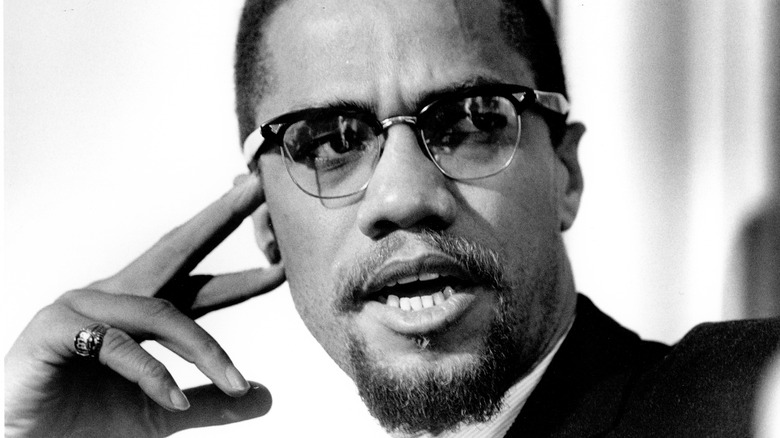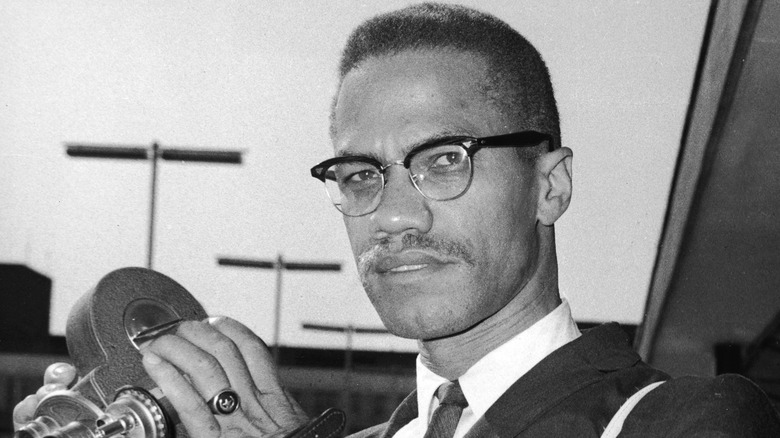This Is What The X In Malcolm X Really Stood For
The history of the civil rights movement and Black empowerment is filled with the names of individuals who fought for the rights of their community. Martin Luther King Jr., for example, advocated for nonviolent methods such as boycotts and peaceful marches, according to the King Institute. Harriet Tubman, on the other hand, helped lead slaves to freedom, even to the point of carrying a gun to protect her quarries from bounty hunters. She also used her weapon to "encourage" those who got cold feet, according to the Harriet Tubman Biography website.
One key civil rights figure who took a more Tubman-esque approach was Malcolm X. Unlike King, he didn't eschew violence. In fact, according to a separate King Institute report, he believed it could be an effective tool. Born Malcolm Little, the Black advocate changed his name after undergoing a transformation while he was imprisoned. That transition included getting an education, changing religions, and dropping his birth name in favor of a single letter.
The X In Malcolm X means everything and nothing
According to the Wesleyan University, while serving a prison sentence for larceny, Malcolm Little began to take an interest in the teachings of Elijah Muhammad and in the Nation of Islam. Eventually, he converted to the religion and changed his name to Malcolm X.
The X in his name isn't meant to be an abbreviation for a word beginning with X. Indeed, it's not meant to mean any one thing. Rather, it symbolizes Malcolm dropping his former surname, Little, which he considered his "slave name." Instead of taking on a new name, he just went with the letter X. Further, the letter symbolizes a brand that was often burned into slaves' skin to signify that they were slaves.
The idea of dropping the name you were assigned at birth because it is a "slave name" isn't limited to Malcolm X. Writing in Medium, Zaron Burnett noted that his own name is tied to his family's history of enslavement and suggested that Blacks should consider dropping such names. "Most white people in America have never considered what it means to walk around with the name of the family that once owned your family. Just imagine if all Black America changed their names on the same day," he wrote.

